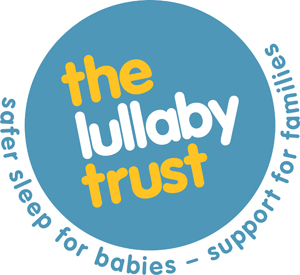
We’re extremely pleased to announce that Brook House Hops will have an official charity partnership in 2022 with The Lullaby Trust.
The Lullaby Trust exists to raise awareness of sudden infant death syndrome (SIDS), provide expert advice on safer sleep for babies, and offer emotional support for bereaved families who have lost a baby.
Throughout the year our whole team is hoping to get actively involved and support fundraising initiatives for this extremely important and worthwhile charity. We will also provide the opportunity for our customers to show their support too if they wish and further details on specific events and activities will be announced in the coming weeks and months.
The Lullaby Trust charity is particularly close to the heart of our Operations Director, Gareth Price who shares his personal experience of using their support services.
“In 2014 and 2018 my family and I had the need to directly interact with The Lullaby Trust, owing to the death of our two baby daughters, from SIDS. No one can still explain SIDS or what causes it, but I can explain the horrendous impacts of it. Not having an answer to “why” will forever haunt us but The Lullaby Trust has helped us all to try and live with it, the best we can. Not only are they there for support but they are leading the way in research to try and understand what causes it. We have been fundraising for them ever since 2014 and my family’s aim is to hopefully stop this happening to even one other family.”
You can read more about the great work The Lullaby Trust do here.
https://www.lullabytrust.org.uk/about-us/what-we-do/
If you would like to pledge a small donation now to help us with our fundraising and show your support our Just Giving page is now active.
https://www.justgiving.com/fundraising/brook-house-hops
We’re hugely grateful for any amount pledged to help raise much-needed funds for The Lullaby Trust to keep their important work and vital support for families going.

What causes SIDS?
Experts say that Sudden Infant Death Syndrome (SIDS), often called crib death, occurs during a specific period in babies’ lives. While it can happen at any time, experts believe that most cases occur within the first six months of life.
The American Academy of Pediatrics says that SIDS usually affects infants under one year old. They recommend that babies sleep alone in a separate bed from adults. If cosleeping is unavoidable, babies should sleep on their backs in a safe position.
How to reduce the risk of SIDS
The American Academy of Pediatrics recommends that parents avoid putting infants to sleep on their tummies. They say it puts babies at greater risk of sudden infant death syndrome (SIDS). Experts suggest placing babies on their backs to sleep, and avoiding letting them nap while lying face up.
Experts say that parents shouldn’t put babies to sleep on their stomachs because it increases the risk of suffocation. And they don’t want babies to sleep next to adults either.
They do advise that parents keep crib mattresses firm and free of soft pillows. They also recommend keeping rooms cool and dark.
Seeking medical advice if your baby is unwell
Most babies will recover quickly from mild illnesses such as colds and ear infections, according to experts. However, it’s important to call an ambulance immediately if your baby’s condition worsens. In fact, you should consider calling an ambulance even if your baby seems fine because some conditions are potentially life-threatening.
The American Academy of Pediatrics recommends that parents seek medical care for sick children within 24 hours of noticing signs of illness. This includes fever, vomiting, diarrhoea, irritability, lethargy, poor feeding, breathing problems, cough, rash, redness around the eyes or ears, swollen glands under arms or neck, wheezing, and difficulty sleeping, or seizures. Parents should also contact a paediatrician if there are no obvious symptoms, but a baby appears to be growing slower than normal, or if he or she becomes unusually fussy or cranky.
In addition, doctors recommend that parents check out their newborns every few days during the first month of life to make sure everything is okay. During this period, a baby’s body is still developing, and certain health issues could develop later in childhood. For example, a baby born prematurely might be at risk for vision loss, hearing loss, learning disabilities, asthma, obesity, diabetes, heart disease, cancer, and autism.
If your baby does become seriously ill, here are steps you can take to help him or her:
• Keep the baby warm. Cover the baby with blankets and place him or her in a crib or bassinet near a heater or fan. If possible, keep the room temperature comfortable.
• Make sure the baby gets plenty of fluids. Offer water, juice, milk, formula, or breastmilk frequently throughout the day.
• Check the baby’s diaper often to see how much urine and stool he or she produces.



